|
Purpose: To connect the chasm between the faith based world of the church, and the knowledge based world of Seminary. Many of those who visit Fig Tree are not going to be upset today. Most of what I am going to say might be enlightening, but won't be scandalous. Some will be upset. Please realize, it is difficult to discuss the bible, and we should be gentle with those who will be taking those giant leaps. For those of you taking those big leaps, I'm with you. Everything I am going to share I believe, and I am still a Christian. Also, I am writing to all of you, not just the "you" that will embrace what I am saying. Now that's out there and we can move on. I want to talk about Genesis 1-2 for the next few weeks. Today I want to talk about perspective. In the beginning scrolls, ink, anything used to write didn't exist. As we evolved as a people, we evolved how we told stories. Now, I don't know how many Christians contemplate when the Creation story was written down. If we are talking about a literal story, it wasn't written down the moment it happened. No one back then had the ability to write. There is Jewish tradition that says God told the story to Moses and he wrote it down. While I don't personally believe this (because of issues we will get into next week) let's run with this idea. If God told Moses the Creation story that must mean the story as we read it is the perfect representation of what really happened. Research over, no reason to go any further... or is there? Now, I just want y'all to think rationally about communication between a less advanced person, and a higher being. Actually let me simplify it further: How does a parent communicate with a child? It's not that a parent is lying to their kid. It's that a parent has to tell the story in a way the kid would understand. Now you honestly tell me: If Moses asked, "God, how did you create all this that I see?", wouldn't God dumb it down for us to understand? I'd bet the answer would still be dumbed down, even if it was an astrophysicist asking the question. Could you imagine God talking to someone who didn't even understand the Earth was round. How do you explain the beginning of everything to a person who doesn't even know there are other lands beyond their seas? This is how we can embrace the God inspired myth. Okay, deep breath. I know I just used the word myth, but there are times when our own family history becomes a sort of mythology. That's how I want you to look at the Creation Narrative. God gave us stories to help us understand the beginning. As a more scientific people, it has become more difficult to digest, but the core of those stories still remain true. God created the heavens and earth. It was good. Now rest. It gets even deeper next week.
We can talk about transformation and our greatest want until we are blue in the face, but if we can't connect the dots we are wasting our breath. I've been to enough broken churches to see the biggest hinderance to positive transformation towards Christ, our greatest want. Imagine this with me: Every church (and person for that matter) has a metaphorical mirror. A healthy person, or group, has the capacity to self-reflect. Normally, we can tell someone to consider the situation and they will see themselves as they really are, and change their ways. Well, there is a reason broken churches stay broken. At some point they look into that metaphorical mirror and decide to tape an old picture of themselves upon it, instead of taking in what they see. So when you ask them to reflect they are all ready to talk about the glory days as if their dwindling numbers really reflect something that can no longer exist. You can try to ask them to talk about now, but to them, the glory days are now. (Even when it is blatantly obvious to anyone on the outside the glory days were years before.) As long as that false image continues to cover the mirror, there is no one who can help that person or group change. You might as well being trying to change a brick wall for the good it will do. You can tell them they are seeking the incorrect "greatest want" and tell them what you see physically happening at that moment. They will simply reply by sharing the image taped over the mirror. You can easily pinpoint taped over mirrors because the language will always be in the past tense. "We had this great event, where we did these wonderful things." "We loved this particular minister who served a decade ago." When things are talked about in the present tense, it's related to the needs to accomplish their new greatest want. "We earned enough money to pay our mortgage this month." We redesigned our our narthex to make it neater." Those kind of things. What do you do? You show the false math in a Christian way. (I stress the word Christian. The false image is a safety blanket. You don't rip safety blankets away.) Last week I said X+Y=Z. Z is our greatest want. X and Y are the means to get to that want. Our in other words, our needs to get to it. For these churches that have lost their ability to self-reflect their math looks like this: A+B=Z A and B don't equal Z. X and Y equals Z. To help a person, congregation or church see the light you have to show how A+B=C. Help them see that their greatest want has changed. (Or worse, they never had Z as their greatest want.) We all know this is easier said than done. There are reasons people live in their brokenness. Honesty is a tool, but it often fails. People tape over their ability to self-reflect because they don't want honesty. In the end individuals are blessed with freewill. Change has to be a choice for it to have a lasting effect. Therefore, until the person chooses to change, nothing really changes. This brings us around full circle. Let me define our monthly sentence: Our needs should focus on Christ as our greatest want, if we desire positive transformation. Make this statement your mantra. Hold yourself accountable to it. Hold us accountable to it. Ask "why" more often to find the want behind the need. Ask "why" more often to seek Christ in the methods.
Every once in a while, it's nice to slow down and explain. There are many newbies here. I realized I don't have a check all post explaining what this area is all about. What are meditations? What is this lectionary thing I keep talking about? I will answer all these questions. Today we are going to delve into the anatomy of Fig Tree's meditations: What are Meditations?One of the key pieces of evangelism is knowing the community you are trying to reach. The internet community doesn't want to sit down at a computer for an hour and watch a worship service. The internet community doesn't even want to watch a minister deliver a sermon. So many want to learn, but the attention span of an user is so short, often times the written word is a better format for quick digestion. The meditations are Fig Tree's version of sermons. It's in a written format because the written format is what people are most attracted to. People read faster than they watch. Also, sermons have a cadance. With a written mediation the facade is dropped, and only the message remains. What Should be in a Meditation?
What is Lectionary and the Christian Calendar?The Christian Calendar: The Christian Calendar is repeating ritual that happens yearly. Different times of year is visually understood with a color.
Lectionary: Lectionary uses the Christian Calendar and repeats on a three year cycle. The years begin the first Sunday in Advent. Each synoptic gospel has it's own year. Year A: Matthew Year B: Mark Year C: Luke Lectionary is made up of four scriptural readings each week: A Hebrew Bible, a Psalm, a Gospel, and an Epistle reading. The lectionary is meant to cover the major stories and lessons in the bible within a three year period. A minister, preaching a scripture a Sunday, could technically cover all the lectionary scripture in 12 years. I used the revised common lectionary, which can be easily found on Vanderbilt's website, and there is even a subreddit devoted to it.
|
Categories
All
Archives
October 2023
|


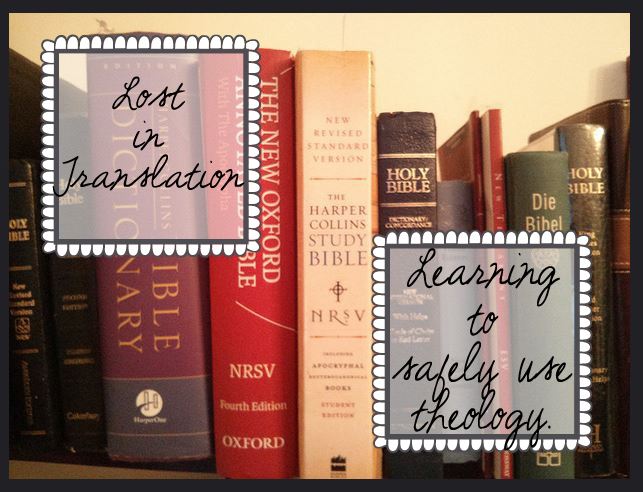
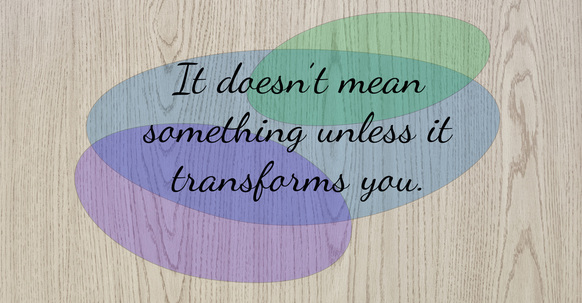
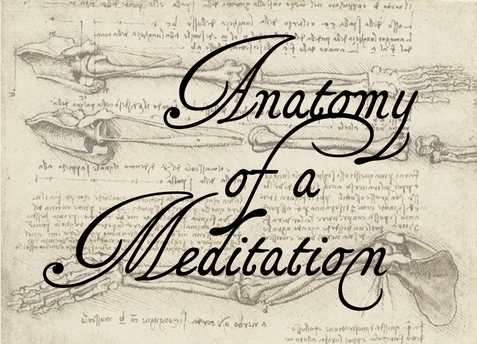
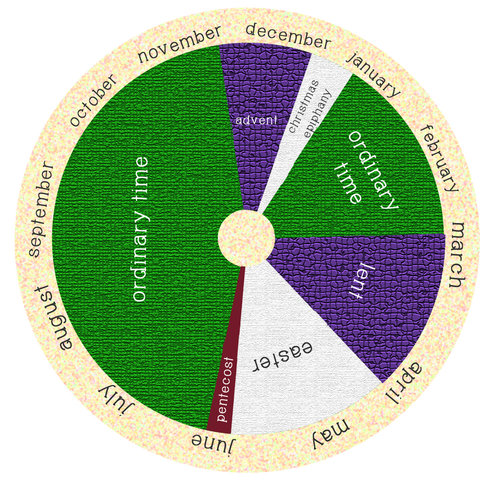
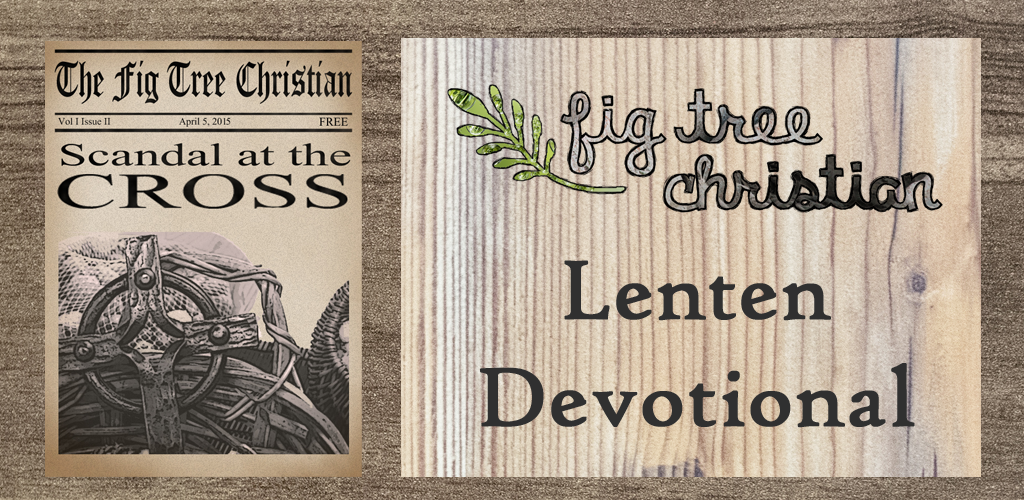

 RSS Feed
RSS Feed